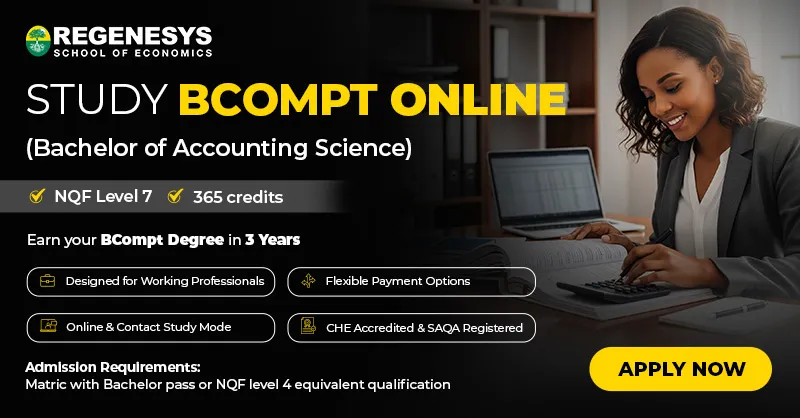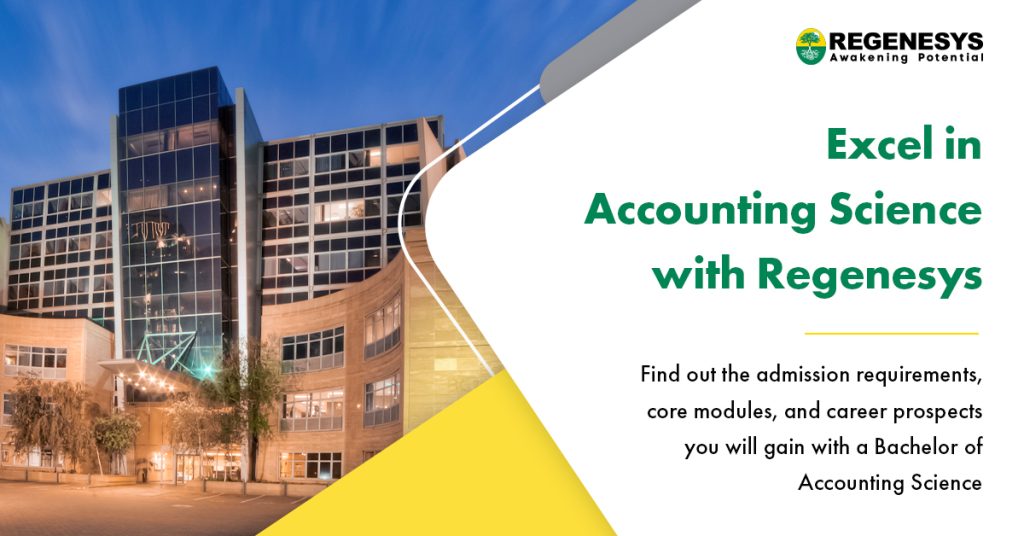Accounting Science is an essential function of any successful business. It involves recording, organising, and analysing financial information to help make informed business decisions.
If you are looking to take your accounting career to the next level, pursuing a master’s degree may be the best solution for you.
In this article, let’s explore what a Master’s degree in accounting entails, the skills you can develop, and the benefits of pursuing a higher degree. This guide lets you decide whether a Master’s degree in accounting suits you.
Table of Contents
The Highest Degree in Accounting
Regarding the accounting science domain, there is a pinnacle that professionals can strive to reach – the highest degree in accounting. This esteemed qualification opens up a world of opportunities and signifies a mastery of the subject matter.
The highest degree in accounting science is typically a Doctorate in Accounting or a Doctor of Business Administration (DBA) with a concentration in accounting. This advanced degree is designed for individuals who are passionate about the field and wish to contribute to its advancement through research, teaching, and leadership roles.
Obtaining the highest degree in accounting science requires significant time, effort, and intellectual rigour. It typically involves rigorous coursework in advanced accounting theories, research methodologies, and specialised areas within the field.
Students pursuing this degree often engage in extensive research projects, publish scholarly articles, and collaborate with esteemed professors and fellow scholars.

Why Pursue the Highest Degree in Accounting?
For many professionals, it is a way to deepen their knowledge, enhance their credibility, and distinguish themselves in a competitive job market. The highest degree in accounting can open doors to prestigious academic positions, high-level consulting, or even executive positions within organisations.
Moreover, the highest degree or higher certificate in accounting science allows individuals to contribute substantially to the field. Through their research, these scholars uncover new insights, challenge existing theories, and shape the future of accounting practices. Their expertise and thought leadership can influence industry policies, standards, and best practices.
While pursuing the highest degree in accounting requires dedication and perseverance, it offers immense personal and professional rewards. It is a journey that transforms individuals into experts, thought leaders, and catalysts for change in the accounting profession.
What are the Benefits of Pursuing a Master’s Degree in Accounting?
Mastering Accounting: Exploring the Highest Degree
Pursuing a master’s degree in accounting after a bachelor of accounting science can open up opportunities and provide numerous benefits for aspiring accountants.
Whether you are just starting your career or looking to advance in your current role, here are some key advantages of obtaining a master’s degree in accounting.
Enhanced Knowledge and Skills:
- A master’s degree programme in accounting goes beyond the foundational principles covered in undergraduate studies.
- It delves deeper into advanced accounting topics, taxation, auditing, financial reporting, and other specialised areas.
- This in-depth knowledge equips graduates with a comprehensive understanding of accounting principles and practices, enabling them to excel in their profession.
Increased Career Opportunities:
- A master’s degree in accounting can significantly expand your career prospects.
- Employers often seek candidates with advanced degrees for managerial and senior-level positions.
- With a master’s degree, you become a more competitive candidate for roles such as financial analyst, tax consultant, internal auditor, or even a certified public accountant (CPA).
- Additionally, many accounting firms require a master’s degree or certain credit hours to be eligible for partnership opportunities.
Professional Network:
- Pursuing a master’s degree after a bachelor of accounting science allows you to connect with professionals in the industry, including classmates, professors, and guest speakers.
- These connections can be invaluable for networking, mentorship, and future job opportunities.
- Building a solid professional network can open doors to collaborations, referrals, and industry insights that can further enhance your career.
Specialisation and Expertise:
- Some master’s programmes offer specialisations within the accounting field, allowing students to focus on areas such as forensic accounting, taxation, financial analysis, or auditing.
- Individuals can develop expertise and differentiate themselves in the job market by specialising in a specific area.
- Employers value professionals with specialised knowledge, and it can lead to exciting and rewarding career paths.
Professional Certifications:
- Many master’s programs in accounting are designed to meet the educational requirements for professional certifications, such as the CPA or Certified Management Accountant (CMA).
- These certifications are highly regarded in accounting and can significantly enhance career prospects.
- A master’s degree can provide the necessary coursework and knowledge to prepare for these rigorous exams, giving you a competitive edge in the job market.

The Bottom Line
A master’s degree in accounting is highly significant for individuals seeking to excel in finance. It offers a comprehensive education, enhances professional credibility, provides networking opportunities, and opens doors to various career prospects. If you aspire to become a master in accounting, pursuing a master’s degree is crucial to achieving your goals.
Reach new heights in accounting with a BCOMPT degree at Regenesys Business School.
Enrol now at Regenesys’ Bachelor of Accounting Science (BCOMPT) and develop your professional knowledge, skills, and applied competencies in accounting, auditing, management accounting and taxation. Click here to learn more in detail about the bachelor of accounting science course details, accounting science requirements, accounting science job opportunities and more in detail about the accounting science Regenesys modules.
FAQs – Frequently Asked Questions – Which is the Highest Degree in Accounting
Why pursue a master’s degree in accounting?
A Master’s degree in Accounting provides an in-depth understanding of accounting fundamentals and techniques to help you build a thriving career in this domain.
What are the career opportunities available with a master’s degree in accounting?
With a master’s degree in accounting, individuals will have a wide range of career options. They can consider working in corporate finance departments, government agencies, public accounting firms, or non-profit organisations. Assess the skills, interests, and long-term goals to determine the best path with the aspirations.
What does a master’s in accounting science programme offer?
A master’s in accounting science programme is pursued after completing a bachelor of accounting science programme.
A master’s in accounting science programme offers a comprehensive curriculum that covers foundational accounting principles, advanced topics, and practical applications. Click here to explore accounting science Regenesys modules.
What are the admission requirements and prerequisites for a master’s degree in accounting?
To embark on a master’s degree in accounting, there are specific admission requirements and prerequisites that aspiring students need to meet. While specific criteria may vary from one institution to another. Listed below are some common prerequisites that most programmes require:
Applicants with a bachelor of accounting science or degrees in business administration or finance;
A GPA score of 3.0 or above is preferred. The required GPA may differ depending on the competitiveness of the programme;
Thus, it is crucial for prospective students to thoroughly research and review the specific admission requirements and prerequisites of the master’s programmes they are interested in.
What to do after completing a master’s degree in accounting?
The accomplishment of the master’s degree in accounting science is just the first step in your accounting journey. Having a clear plan is essential to maximise your degree’s impact. Here are some steps you can take to set yourself up for success:
Gain practical experience;
Obtain professional certifications;
Build a solid professional network;
Specialise or diversify your expertise;
Stay updated with industry developments.






